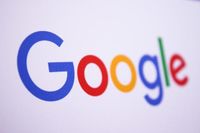In a significant development for the tech industry, Google is reportedly losing ground in the search market to emerging AI competitors. This shift comes amid ongoing antitrust hearings that could reshape the landscape of online search.
During a recent court hearing in Washington D.C., Apple’s Senior Vice President of Services, Eddy Cue, revealed that Apple experienced a decline in web searches via its Safari browser for the first time last month, April 2025. This revelation is particularly alarming for Google, which pays Apple approximately $20 billion annually to have its search engine set as the default in Safari. As Cue explained, the decline in searches can be attributed to an increasing number of users opting for generative AI-based services such as OpenAI's ChatGPT and Perplexity.
According to Bloomberg, the Justice Department (DOJ) is aiming to challenge Google's dominance in the search industry, proposing aggressive measures that include forcing the tech giant to terminate its exclusivity agreements, including the lucrative deal with Apple. TD Cowen analyst John Blackledge noted that Apple may be exploring alternatives to Google Search to demonstrate to the court that Google’s search business faces legitimate threats from AI chatbot platforms.
"Broadly speaking, we believe Apple is hoping to avoid losing the revenue share agreement with Google that reportedly provides roughly $20 billion annually," Blackledge wrote in an investor note. He added that Apple's testimony about declining search queries could help preserve this financial arrangement.
As Google continues to grapple with the implications of AI on its search business, it has been on the defensive since the launch of ChatGPT in late 2022. The company quickly introduced its own generative AI product, initially named Bard but later rebranded as Gemini. Despite these efforts, Google faced criticism for the performance of its AI, which initially provided some questionable advice, like suggesting users add glue to pizza to prevent cheese from sliding off.
The ongoing antitrust case against Google has seen both sides presenting their arguments over the past three weeks, with more than two dozen witnesses called to testify. The hearing is expected to conclude today, May 9, 2025, and both parties will present their closing arguments at the end of this month. Judge Amit P. Mehta, who is presiding over the case, is anticipated to deliver a decision by August.
In a previous ruling, Judge Mehta determined that Google had violated antitrust laws by paying companies like Apple, Samsung, and Mozilla billions to ensure its search engine appeared as the default option on various devices. This ruling has set the stage for the current hearings, which focus on potential remedies to address Google's monopolistic practices.
The DOJ has argued that significant action is necessary to dismantle Google’s dominance in the search market. They have proposed that Google should be compelled to spin off its Chrome web browser and share search results and advertising data with competitors. This would allow rival search engines and AI companies access to valuable data about user queries and interactions.
During the hearings, government lawyers emphasized the need for forward-looking remedies, warning that if Judge Mehta does not act, Google could extend its dominance into the burgeoning field of AI technology. David Dahlquist, the lead litigator for the government, stated, "This court’s remedy should be forward-looking and not ignore what’s on the horizon. Google is using the same strategy that they did for search and now applying it to Gemini."
In response, Google’s legal team argued against the DOJ’s proposals, claiming that they would jeopardize popular products and compromise user privacy and security. Sundar Pichai, Google’s CEO, testified that sharing sensitive data with competitors could lead to unintended consequences, referencing a past incident in 2006 where AOL inadvertently released search data that allowed journalists to identify a user based on their queries.
Google's representatives also pointed out the competitive landscape in the AI market, highlighting the success of other companies like OpenAI. They suggested that rather than dismantling its business, Google should be allowed to modify its contracts with web browsers and smartphone manufacturers to facilitate collaboration with competing search and AI services.
As the hearings progressed, Judge Mehta expressed concern about the rapid evolution of AI technology and its implications for the search market. He noted that the integration of AI into search processes, which was once considered years away, has now become an immediate reality.
"One of the things that has struck me, Mr. Pichai, about these proceedings is, when we were together not so long ago, the consistent testimony from the witnesses was that the integration of AI and search or the impact of AI on search was years away. By the time we’ve gotten here today, things have changed dramatically," Judge Mehta remarked.
As the court prepares to make a decision that could have far-reaching implications for Google and its competitors, the tech giant faces mounting pressure to adapt to the shifting landscape of search and AI technologies. With the emergence of generative AI services challenging traditional search methods, the future of Google’s search dominance remains uncertain.
The outcome of this case could redefine how users access information online and reshape the competitive dynamics of the tech industry, making it a pivotal moment for Google and its rivals.


